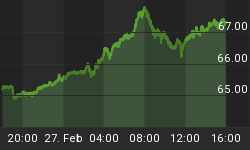The United States of America is not what it used to be. Unsustainable mountains of debt, continuous meddling by the government and Fed to "stimulate the economy," and the US dollar's dwindling status as the world's reserve currency are very real threats to Americans' standard of living. Here are some opinions from the recently concluded Casey Research Fall Summit on the state of the state and how to fix it.
Marc Victor, a criminal defense attorney from Arizona and a staunch liberty advocate, says there's really no such thing as "the state"-"it's just some people bossing other people around."
Not everyone wants to fix things, he says; the bosses like the status quo. For example, aside from drug lords, DEA agents are the ones benefiting most from the "War on Drugs."
Victor believes that democracy and freedom are incompatible, since "democracy is majority rule, and freedom is self-rule." If you want to bring true freedom to America, he says, winning hearts and minds is the only way to reboot this country and create a free society.
Paul Rosenberg, adventure capitalist, Casey Research contributor, and editor of "A Free Man's Take," views America's future similarly. He thinks the United States is in a state of entropy.
The bad news, says Rosenberg, is that there will be no revolution. The good news is that the peak of citizens' obedience to the state is behind us, and people are getting fed up with the government's shenanigans.
Real change is slow, he says, so we must work persistently to create a better world.
Stephen Moore, chief economist at the Heritage Foundation, says the problem is liberal economic policy: Red states in the US, he says, have blown away blue states in job creation since 1990. Texas alone accounts for the entire net growth of the US economy over the past five years.
As another proof point in favor of a free-market economy, Moore emphasizes that both Obama and Reagan took office during terrible economic times. While Obama has raised taxes and instituted Obamacare, Reagan cut taxes and regulation. As a result, the Reagan economic recovery was almost twice as robust as the Obama "recovery."
One of the US's biggest problems, says Moore, is that companies can't reinvest profits because dividend, capital gains, and income taxes all have increased under Obama. Corporate taxes in the rest of the world have dramatically declined in the last 25 years, but in the US, they haven't budged. The average corporate tax rate around the world is 24%-in the US, it's 38%.
Overall, though, Moore is bullish on the US economy. American companies, he says, are the best-run in the world, if only the US government would adopt less economically destructive policies.
Doug Casey, chairman of Casey Research, legendary speculator, and best-selling financial author, isn't so optimistic. First of all, he says, we're in the Greater Depression right now, which began in 2008. He fears it's too late to repair America, but says if anyone would attempt to do so, the following seven-step program would help:
-
Allow the collapse of "zombie companies" (companies that are only being held up by government handouts and other cash infusions).
-
Abolish all regulatory agencies.
-
Abolish the Federal Reserve.
-
Cut the size of the military by at least 90%.
-
Sell all US government assets.
-
Eliminate the income tax.
-
Default on the national debt.
Of course, says Casey, that's not going to happen, so individual investors shouldn't hope for a political solution or waste their time and money trying to stop the inevitable collapse of the US economy. The only way to save yourself and your assets is to internationalize.
He recommends owning significant assets outside your home country: for example, by buying foreign real estate. You should also buy and store gold, "the only financial asset that's not simultaneously someone else's liability."
Casey's suggestions include going short bubbles that are about to burst (like Japanese bonds denominated in yen), selling expensive assets like collectible cars and expensive real estate in major cities, as well as looking toward places like Africa as contrarian investment opportunities.
Nick Giambruno, senior editor of International Man, agrees that internationalizing your wealth-and yourself-is the most prudent way to go for today's high-net-worth investors. It ensures that "no single government can control your destiny," and that you put your money, business, and yourself where they are treated best.
You should internationalize each of these six aspects of your life, says Giambruno: your assets; your citizenship; your income/business; your legal residency; your lifestyle residency; and your digital presence.
Regarding your assets, you can find better capitalized, more liquid banks abroad, and using international brokerage accounts can provide you access to new investment markets.
To hear all of Nick Giambruno's detailed tips on how to go global, as well as every single presentation of the Summit, order your 26+-hour Summit Audio Collection now. It's available in CD and/or MP3 format. Learn more here.
The article The Broken State and How to Fix It was originally published at caseyresearch.com















